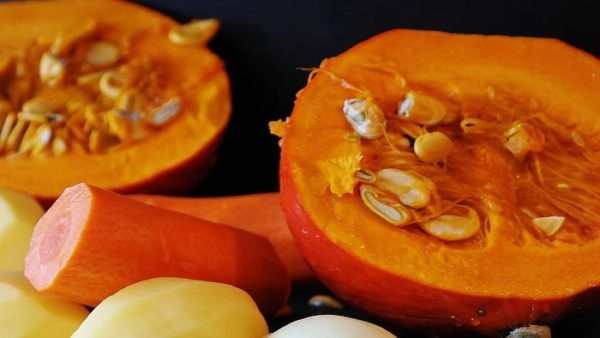Eat More Carrots And Pumpkin!
You may have heard about the benefits of raw foods, and all of that is still true. But what is equally true is that some nutrients are more bioavailable when the food has been cooked.
Carotenoids are a good example of this. Carotenoids are a group of mainly yellow, orange, or red fat-soluble pigments, including carotene, which give colour to plant parts such as ripe tomatoes and autumn leaves. These pigments play an important role in both plant and human health.
Carotenoids act as antioxidants in the human body and they have strong cancer-fighting properties. Carotenoids also have anti-inflammatory, weight management and immune system benefits and are sometimes associated with cardiovascular disease prevention. Some carotenoids (the provitamin A group) are converted by the body to vitamin A (retinol), which is essential to vision and normal growth and development. Vitamin A is also an important component in the formation of healthy mucus membranes which are the first line of defense in our immune system.
Beta-carotene is the most easily converted into vitamin A and is the most widely studied of the carotenoids. Cantaloupe, mangoes, papaya, carrots, capsicum, sweet potatoes, spinach, kale and pumpkin are good sources of beta-carotene. And beta-carotene is what gives orange foods their colour; in fact, the word carotene comes from the Latin word for carrot.
Unlike many other vitamins, beta-carotene is not easily destroyed by cooking, especially if you only cook your vegetables for a short time. In fact, cooking can actually help to break down the thick cell walls of the vegetables effectively releasing beta-carotene, thereby making beta-carotene more readily available for your body to use. In a study published in the May 1998 issue of The Journal of Nutrition, women who ate cooked carrots absorbed three times more beta-carotene as women who ate raw carrots.
Another study published in the The Journal of Nutrition found beta-carotene may help lower the risk of metabolic syndrome. Metabolic syndrome is characterised by high blood pressure, high blood sugar, abnormal cholesterol levels and excess fat around the waist. Men with the most beta-carotene intake had the lowest risk of metabolic syndrome, as well as reduced waist circumference. Scientists suspect this is the result of beta-carotene’s antioxidant activities.
Whilst there have been some studies that have indicated possible risks with taking large doses of beta-carotene in supplement form, obtaining large amounts of beta-carotene from food, however, does not carry this risk; the worst that can happen is your skin may temporarily turn orange!

